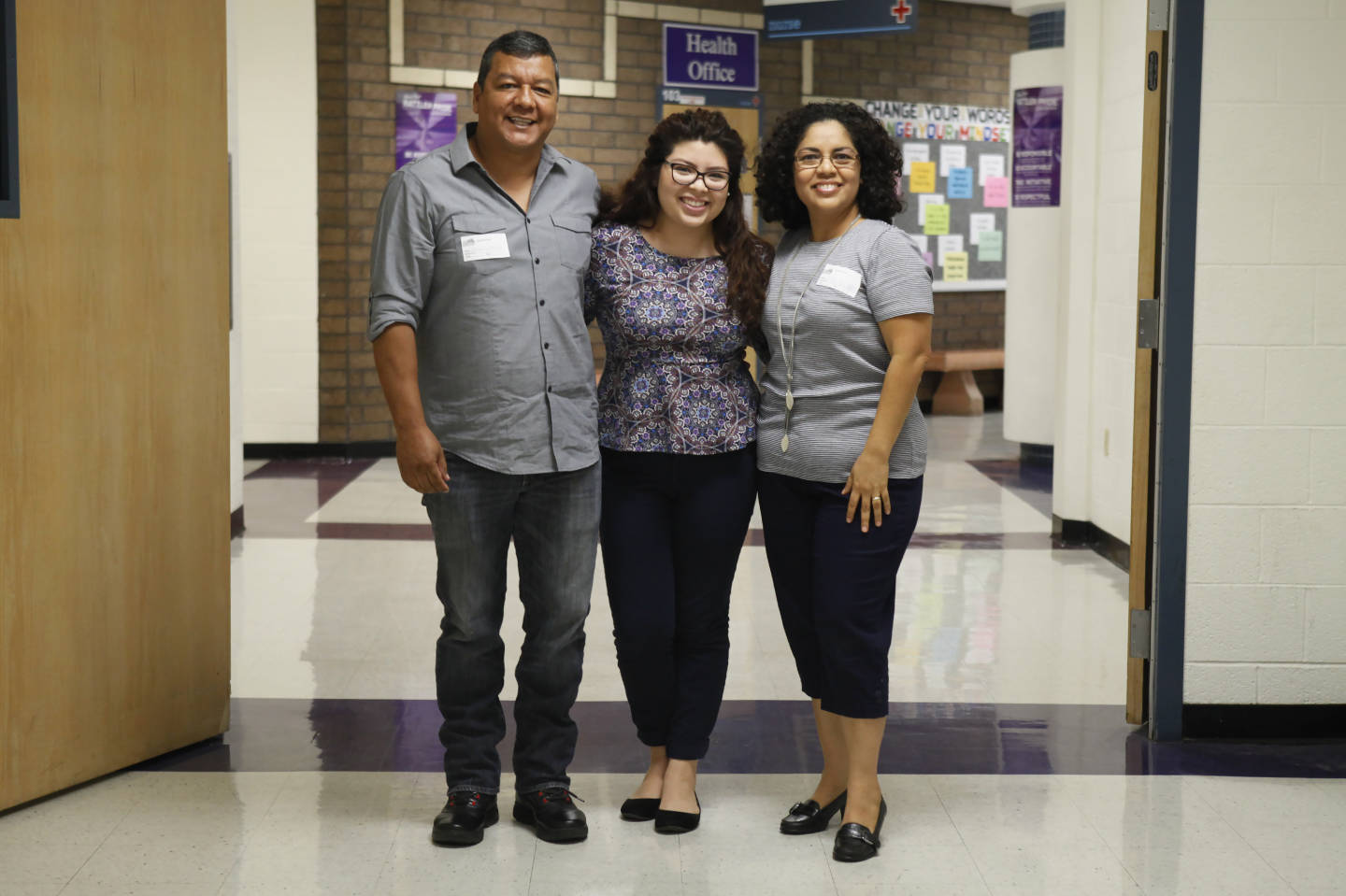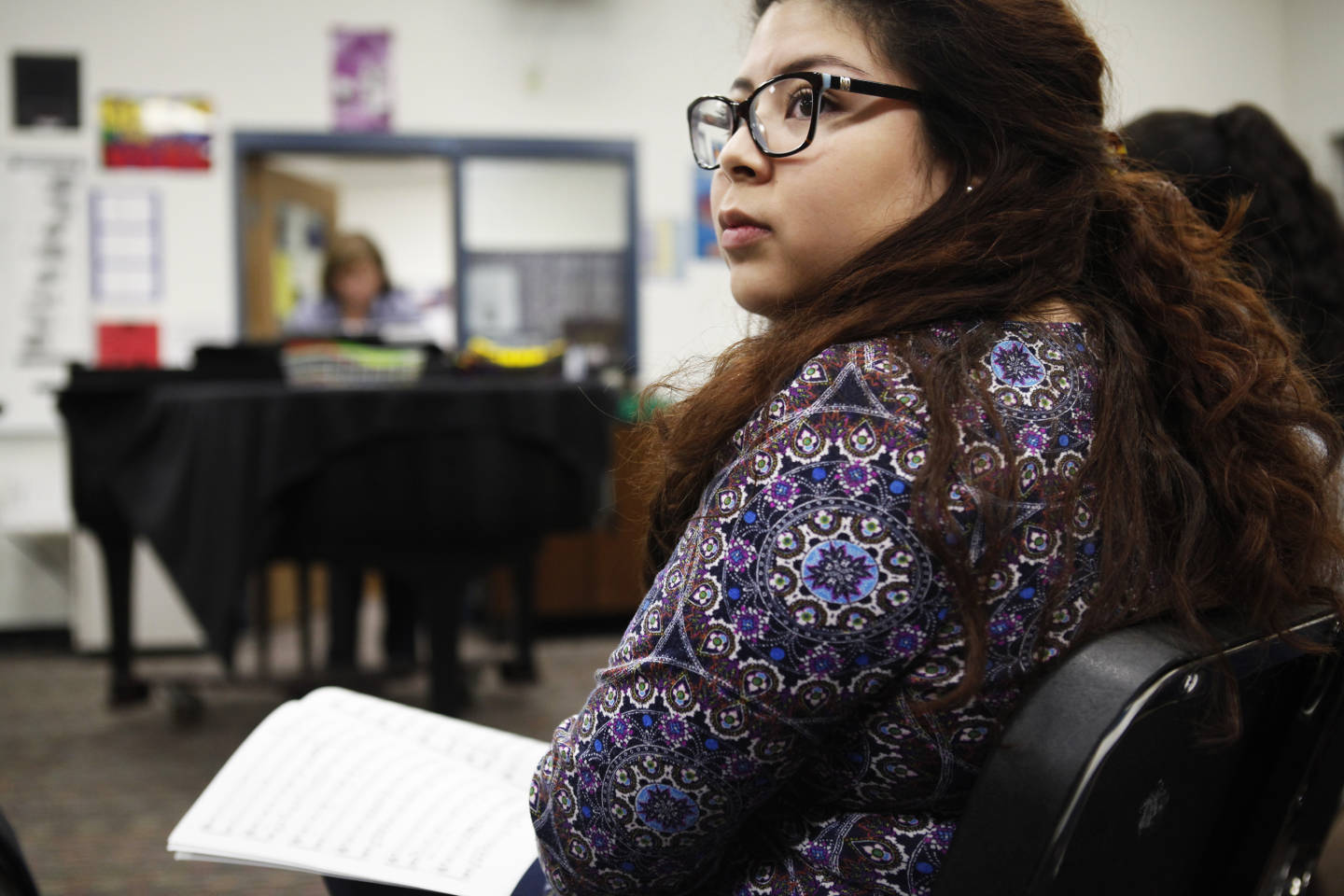Of the 3 million students identified as gifted in the U.S., English Language Learners are by far the most underrepresented. And nobody knows that better than 17-year-old Alejandra Galindo.
“It’s just kind of hard to not see people who look like me in my classes,” she says. “I’m a minority in the gifted world.”
Alejandra is a senior at North Canyon High School in Phoenix. Before she was identified as gifted, she was identified as an English Language Learner, or ELL. You know, those kids who are often assigned to separate classrooms while they learn English. That was Alejandra.
“She would cry and not want to go to school,” says her mom, Norma Galindo. “She didn’t want to be Hispanic. She didn’t want to speak our language.”
Norma Galindo is originally from El Salvador. Her husband, Arnulfo, is from Mexico. They’ve always known their daughter was bright beyond her years.
“I remember Alejandra coming to me and saying, ‘Mom, I’m bored at school. Classes are so easy,’ ” says Norma Galindo. “And I said, ‘You’re not supposed to be bored at school. You need to be challenged.’ So I talked to her teacher and asked, ‘Can you do something for her?’ ”

Alejandra’s mom, Norma Galindo, is originally from El Salvador. Her dad, Arnulfo Galindo, is from Mexico. They’ve always known their daughter was bright beyond her years. (Elissa Nadworny/NPR)
Parents are usually the first ones to figure out that their child is gifted, but that message often doesn’t get to the educators in schools.
Many schools don’t even test ELLs for giftedness, and most teachers aren’t trained to identify those students.
It doesn’t have to be that way, says Alejandra.
“I think it’s just all about letting those kids know that [they] have just as much potential as any other kid,” she says, “regardless of your skin color or where your parents came from or what language you speak.”
Alejandra was lucky. In fourth grade, a teacher singled her out and asked that she be tested. The results showed that her verbal reasoning skills were off the charts, a sign of giftedness not just in English but Spanish as well.
“Now that I’m older,” says Alejandra, “I realize that being bilingual is very, very important. That in combination with being gifted, it’s like so many doors have opened.”
At North Canyon High, those doors have opened wide. Alejandra has excelled in just about every college-level course she has taken. Her academic success has motivated her to fine-tune her other gift, singing. She’s a section leader on the school choir.

Being bilingual and gifted has opened many doors, says Alejandra (Elissa Nadwarny/NPR)
You need to be a member of School Leadership 2.0 to add comments!
Join School Leadership 2.0